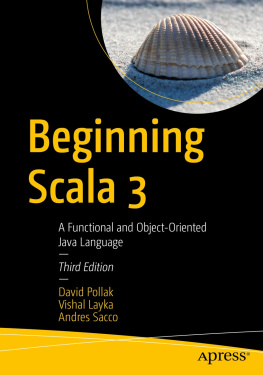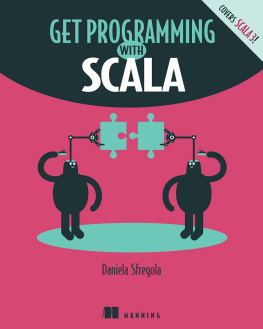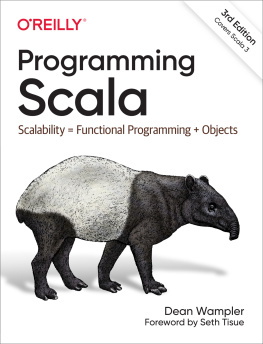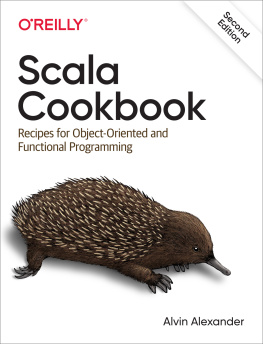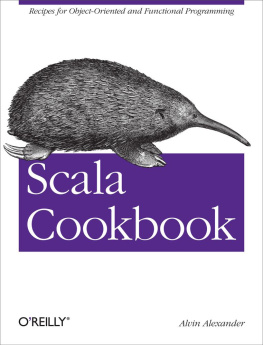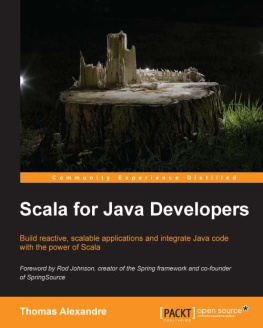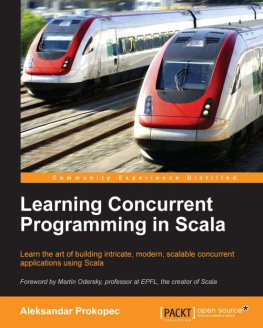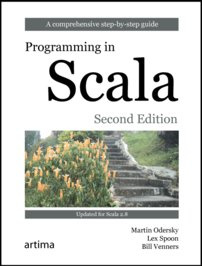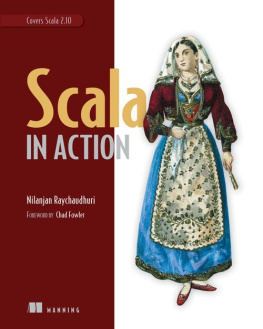Payne Alex Wampler Dean - Programming Scala
Here you can read online Payne Alex Wampler Dean - Programming Scala full text of the book (entire story) in english for free. Download pdf and epub, get meaning, cover and reviews about this ebook. year: 2009, publisher: OReilly Media, Inc., genre: Home and family. Description of the work, (preface) as well as reviews are available. Best literature library LitArk.com created for fans of good reading and offers a wide selection of genres:
Romance novel
Science fiction
Adventure
Detective
Science
History
Home and family
Prose
Art
Politics
Computer
Non-fiction
Religion
Business
Children
Humor
Choose a favorite category and find really read worthwhile books. Enjoy immersion in the world of imagination, feel the emotions of the characters or learn something new for yourself, make an fascinating discovery.

- Book:Programming Scala
- Author:
- Publisher:OReilly Media, Inc.
- Genre:
- Year:2009
- Rating:5 / 5
- Favourites:Add to favourites
- Your mark:
Programming Scala: summary, description and annotation
We offer to read an annotation, description, summary or preface (depends on what the author of the book "Programming Scala" wrote himself). If you haven't found the necessary information about the book — write in the comments, we will try to find it.
Learn how to be more productive with Scala, a new multi-paradigm language for the Java Virtual Machine (JVM) that integrates features of both object-oriented and functional programming. With this book, youll discover why Scala is ideal for highly scalable, component-based applications that support concurrency and distribution. Youll also learn how to leverage the wealth of Java class libraries to meet the practical needs of enterprise and Internet projects more easily.
Payne Alex Wampler Dean: author's other books
Who wrote Programming Scala? Find out the surname, the name of the author of the book and a list of all author's works by series.

